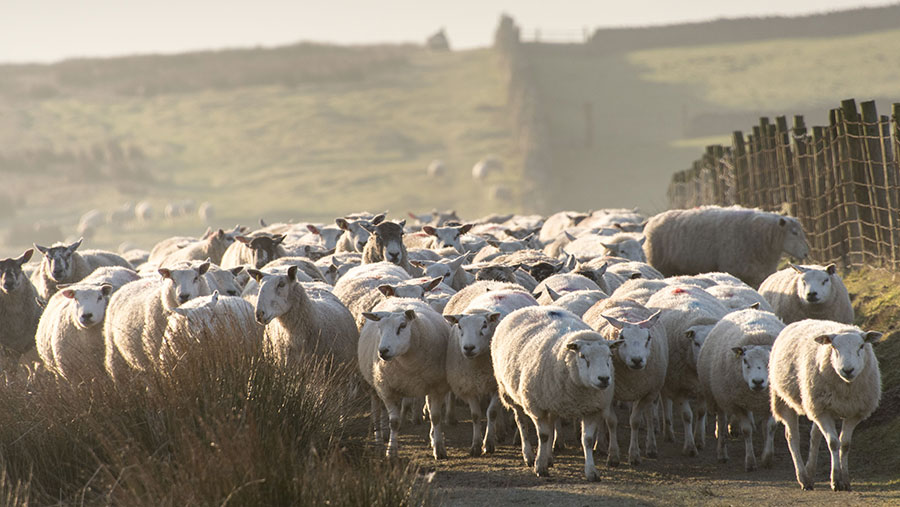Sheep farmers told to reduce triclabendazole reliance
 © FLPA/REX/Shutterstock
© FLPA/REX/Shutterstock All efforts must be taken to reduce reliance on triclabendazole for liver fluke control as the threat of resistance looms ever present, sheep farmers are being told.
Now is the time to target adult fluke but there are four other treatment alternatives, as well as managing risk through grazing management, according to the latest National Animal Disease Information Service (Nadis) report.
Parasitologist Mike Taylor has added to calls for sheep farmers to curb triclabendazole so as to safeguard it for the future.
As part of Nadis February update, Prof Taylor said closantel, nitroxynil, oxyclozanide and albendazole are all effective against adult fluke.
Prof Taylor said: “Given at the appropriate dose rate, closantel, nitroxynil, oxyclozanide and albendazole are all effective against adult fluke, which are present at this time.
See also: Wetness scores reveal Scottish and Welsh liver fluke threat
“Care should be taken to not overdose as some flukicides can have lower safety margins than other wormers.”
Grazing
Parasite control plans should be reviewed with vets ahead of the grazing season, starting by identifying parasite risk.
Determine which fields shall be grazed by which classes of stock, added Prof Taylor. This can be done by using a Nadis’ parasite control planner, available from participating vets.
High-risk regions
High-risk fluke areas are Scotland’s northern, western and central areas, as well as West Wales and part of Cornwall.
Medium risk areas are eastern Scotland and England’s north western and south-western counties.
